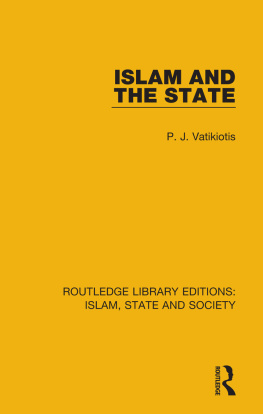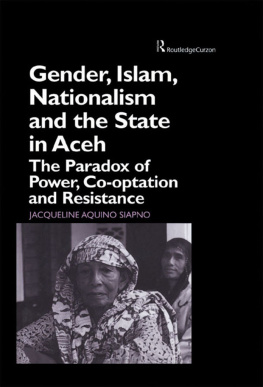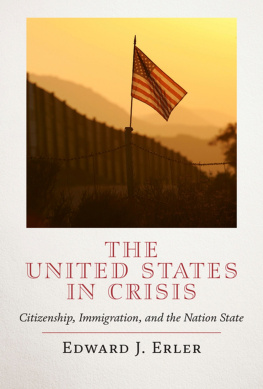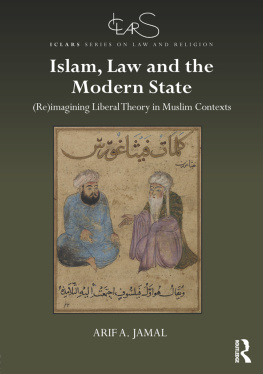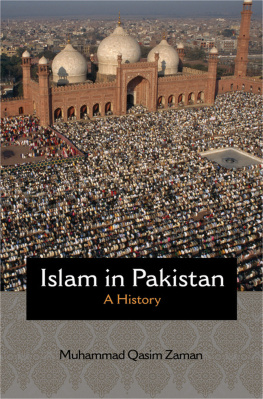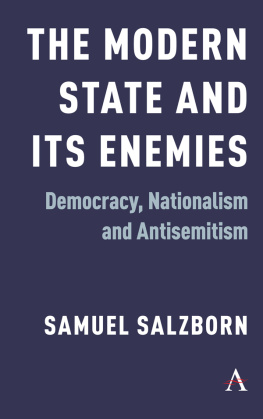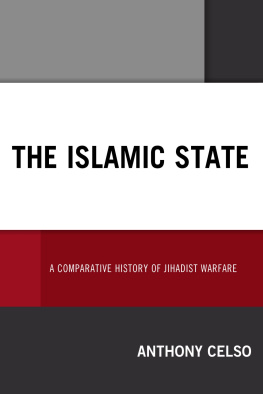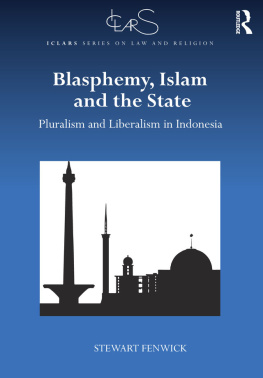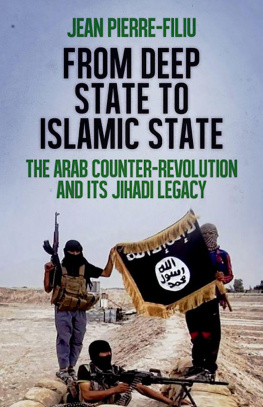First published in 1987
by Croom Helm Ltd
This edition first published in 2017
by Routledge
2 Park Square, Milton Park, Abingdon, Oxon OX14 4RN
and by Routledge
711 Third Avenue, New York, NY 10017
Routledge is an imprint of the Taylor & Francis Group, an informa business
1987 P.J. Vatikiotis
All rights reserved. No part of this book may be reprinted or reproduced or utilised in any form or by any electronic, mechanical, or other means, now known or hereafter invented, including photocopying and recording, or in any information storage or retrieval system, without permission in writing from the publishers.
Trademark notice : Product or corporate names may be trademarks or registered trademarks, and are used only for identification and explanation without intent to infringe.
British Library Cataloguing in Publication Data
A catalogue record for this book is available from the British Library
ISBN: 978-1-138-23270-9 (Set)
ISBN: 978-1-315-31161-6 (Set) (ebk)
ISBN: 978-1-138-21982-3 (Volume 7) (hbk)
ISBN: 978-1-138-21984-7 (Volume 7) (pbk)
ISBN: 978-1-315-41445-4 (Volume 7) (ebk)
Publisher's Note
The publisher has gone to great lengths to ensure the quality of this reprint but points out that some imperfections in the original copies may be apparent.
Disclaimer
The publisher has made every effort to trace copyright holders and would welcome correspondence from those they have been unable to trace.
1987 P.J. Vatikiotis
Croom Helm Ltd, Provident House,
Burrell Row, Beckenham, Kent BR3 1AT
Croom Helm Australia, 44-50 Waterloo Road,
North Ryde, 2113, New South Wales
Published in the USA by
Croom Helm
in association with Methuen, Inc.
29 West 35th Street
New York, NY 10001
British Library Cataloguing in Publication Data
Vatikiotis, P.J.
Islam and the state.
1. Islam and politics
I. Title
297'.1977 BP173.7
ISBN 0-7099-2610-3
Library of Congress Cataloging-in-Publication Data
ISBN 0-7099-2610-3
Printed and bound in Great Britain
by Billings & Sons Limited, Worcester.
When Indiana University invited me to give the Patten Foundation Lectures
Over 20 years ago, E.I. Rosenthal published his Islam and the National State. tended to misinterpret the nature of Islam as an historical religious movement. Nevertheless, his seminal work, Modern Trends, set the boundaries if not parameters of the discussion of the relation of Islam to the modern world.
The efforts of these scholars had been preceded by those of the American orientalist in Egypt, C.C. Adams, whose Islam and Modernism in Egypt was published by the Oxford University Press in 1933. It was basically a biography of Sheikh Muhammad Abduh (d.1905), the most illustrious though not necessarily most successful Egyptian Islamic modernist of the late nineteenth and early twentieth centuries. There was also the work of another great Islamic modernist and reformer, Mohammad Iqbal in India. Indeed, much of the debate about the role of Islam in state and society took place in two major centres of the Muslim world Egypt and the Indian subcontinent. By and large, it still does, particularly if we consider the writings of Sayyid Qutb and his disciples in the former and those of Abu al-Ala' al-Mawdudi, Abu al-Hasan al-Nadv and their disciples in the latter.
There were also the more popular writings of journalists, travellers and publicists on the revival of Islam, the reaction of Muslims to the concatenation of world events from the turn of the century to the end of the Great War, dominated as these events were by Christian European powers; and developments in the relations between Europeans and Islam, or more specifically, European powers and new as well as older Muslim states, going as far back as the Napoleonic conquest of Egypt in 1798, the French conquest of Algeria in 1830, the British occupation of Egypt in 1882, British involvement in Persia from the 1890s to the 1920s, relations with the ailing Ottoman state from the 1830s to the end of the Great War, and the more romantic, albeit bloody, episode of the Mahdist state in the Sudan (1880s-1890s). Thus, for example, the American journalist, Philip Stoddard's The World of Islam, first published in 1920, is the model for much more recent publications in the latest spate of European-Western concern with political Islam, such as John Laffin, The Dagger of Islam, or a number of volumes on the resurgence of Islam.
One could argue that by the 1930s enough of the published work of Islamic modernists/reformers had become available to Western scholars for them that is, Gibb and others to react to the whole Islamic reformist movement by trying to assess its strengths and weaknesses, as well as understand its problems and evaluate its prospects.
The inter-war period, however, was dominated in Muslim lands by the political ascendancy of secularist governing elites promoting a secular political ideology, nationalism. Their special relationship with European powers, with Britain foremost among the latter, tended to encourage and strengthen their promotion of local nationalism and the establishment of secular national political institutions. In fact, one could argue that this relationship also acted as a constraint on these elites against their reversion to the more traditional, i.e. religious, overtone or ethos in their political life. One notes that this reversion was made easier upon the retreat of European power from the lands of Islam, and the severance of the link between it and Muslim governing elites, a process that began as early as the 1930s.
May I remind my reader once again that what is presented here relates to an interpretation of the relation between religion and politics in Islam in general, and its relation to the state and the nation-state in particular. The content and approach are not based on a strictly theoretical examination of ideas in Islam, but on the relation of these ideas to political events to the historical experience of Muslim society, and the evolution of Islamic belief and practice in the crucible of actual experience. To this extent the original lectures and corollary essays are united by a uniform approach. Their diversity, on the other hand, illustrates my contention that the perennial problematic confusion among Muslims regarding the relation between religion and their political order(s) is too complex to be dealt with by facile generalization; more importantly, that revealed or not, religious belief and the Sacred Law are also very much what men living in society and buffeted by events in time and space, make of them, as much as the belief and law themselves in turn influence the behaviour of these same men and their understanding of their world. One could not otherwise explain the differences between, say, Islam in Egypt and the Fertile Crescent practised by basically settled peasant and urban communities and Islam in the Arabian Peninsula, the North African desert, Black Africa, or insular Southeast Asia.
Although originally in the Patten Lectures this work began with a preliminary and cursory consideration of Islam and the nation-state, as a result of parallel work it expanded to

